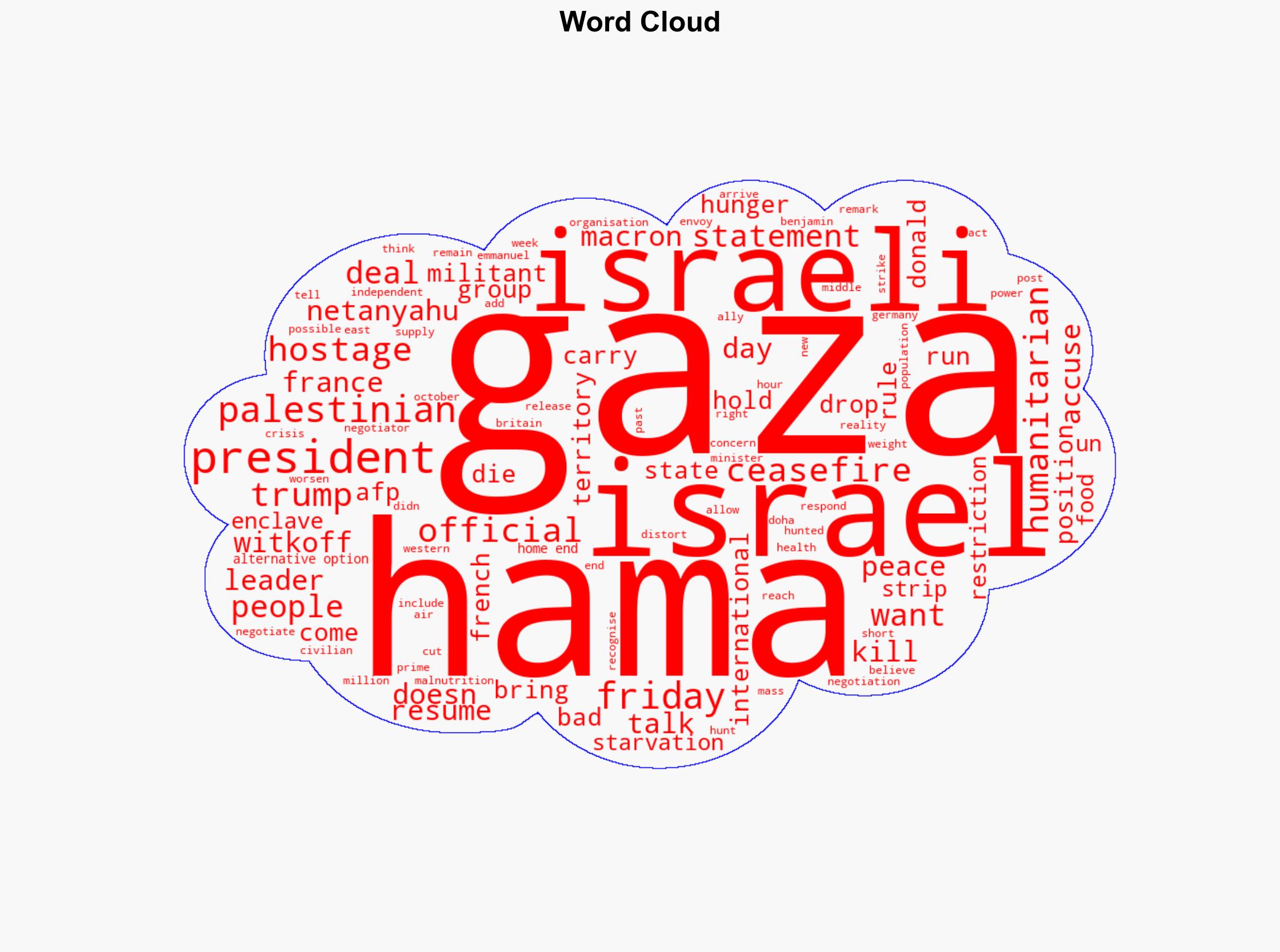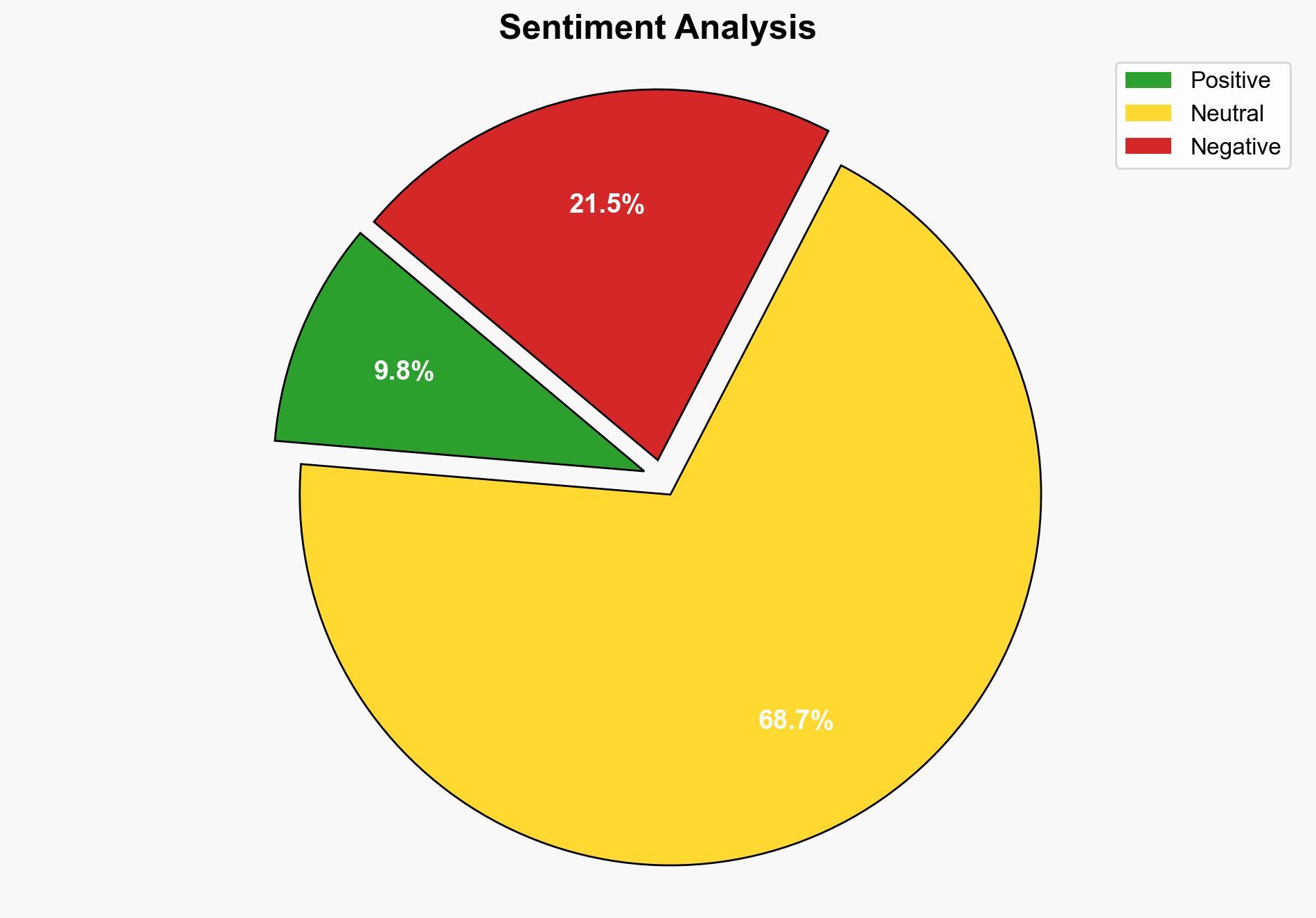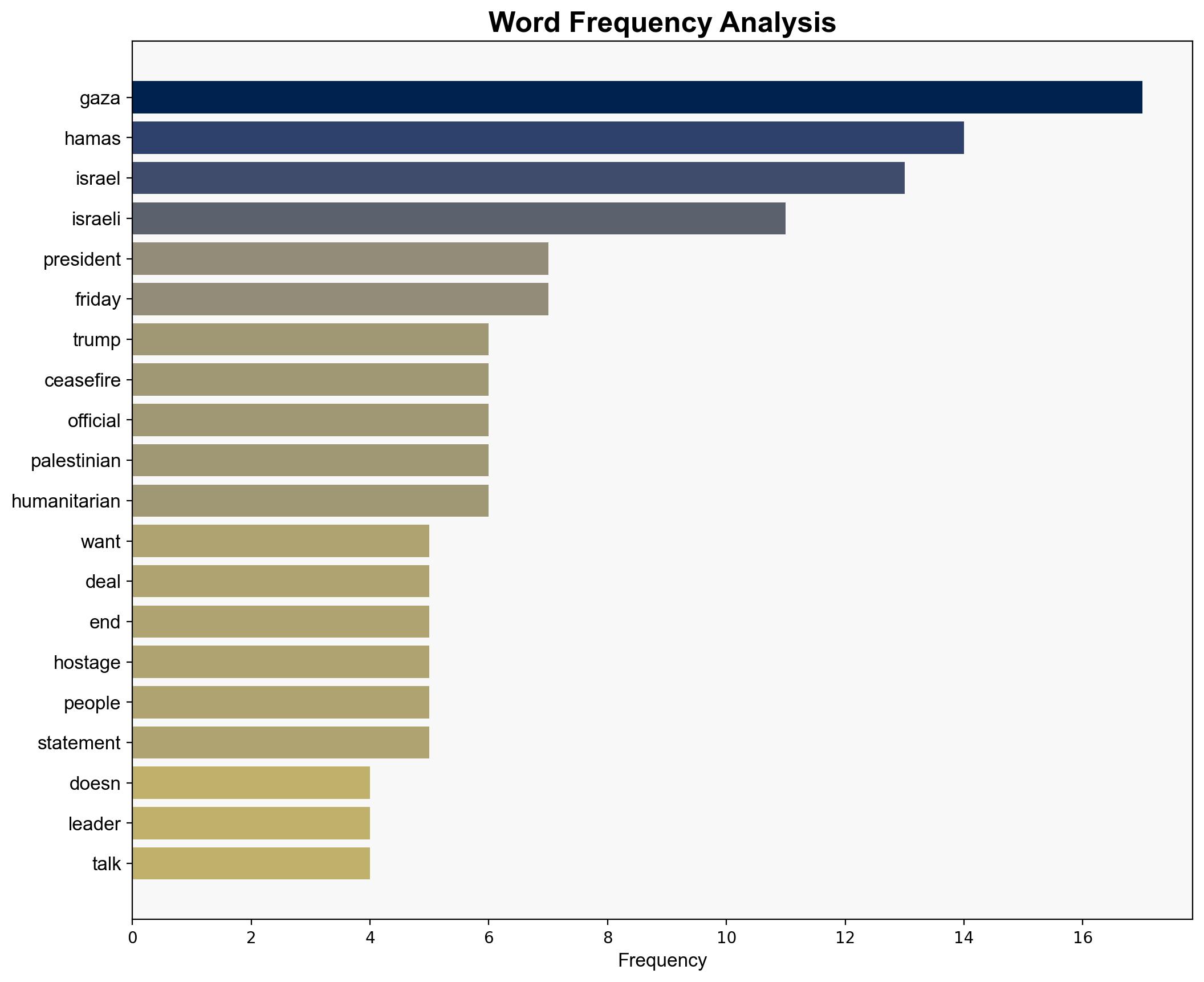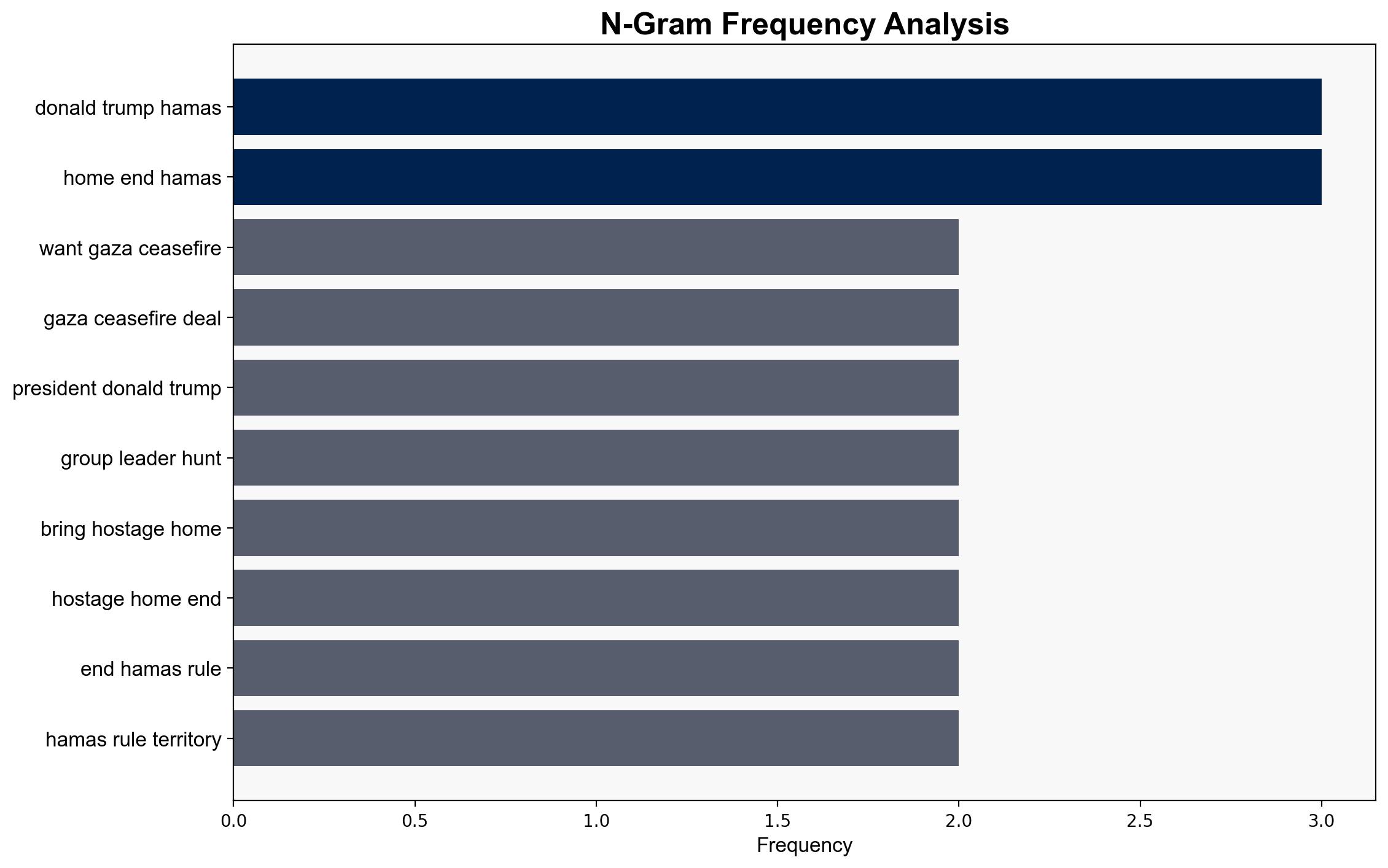Trump says Hamas don’t want Gaza ceasefire deal and will be ‘hunted down’ – ABC News (AU)
Published on: 2025-07-25
Intelligence Report: Trump says Hamas don’t want Gaza ceasefire deal and will be ‘hunted down’ – ABC News (AU)
1. BLUF (Bottom Line Up Front)
The most supported hypothesis is that Hamas is strategically avoiding a ceasefire to maintain leverage and negotiate from a position of strength. Confidence level: Moderate. It is recommended to enhance diplomatic efforts with regional stakeholders to mediate a temporary ceasefire, thus alleviating humanitarian concerns while creating space for longer-term negotiations.
2. Competing Hypotheses
1. **Hamas is avoiding a ceasefire to maintain leverage:** This hypothesis suggests that Hamas believes continuing hostilities will strengthen its negotiating position, potentially gaining concessions from Israel or international actors.
2. **Hamas genuinely seeks a ceasefire but faces internal divisions:** This alternative posits that while some factions within Hamas desire a ceasefire, internal disagreements prevent a unified response, leading to mixed signals and stalled negotiations.
Using ACH 2.0, the first hypothesis is more supported by the consistent narrative from Israeli and U.S. officials and the absence of a cohesive response from Hamas, indicating strategic posturing rather than genuine negotiation efforts.
3. Key Assumptions and Red Flags
– **Assumptions:** The analysis assumes Hamas has a unified command structure capable of coherent decision-making. It also presumes that international diplomatic pressure can influence Hamas’s decisions.
– **Red Flags:** The potential for misinformation or propaganda from both sides could distort the reality of negotiations. The lack of direct communication channels increases reliance on potentially biased intermediaries.
– **Blind Spots:** The internal dynamics of Hamas and their impact on decision-making are not well understood, leading to potential misinterpretations of their actions.
4. Implications and Strategic Risks
– **Escalation Risks:** Continued hostilities could lead to broader regional instability, drawing in neighboring countries and complicating international diplomatic efforts.
– **Humanitarian Impact:** Prolonged conflict exacerbates the humanitarian crisis in Gaza, increasing international pressure on Israel and its allies.
– **Geopolitical Dynamics:** The situation could strain U.S. relationships with Middle Eastern allies, particularly if perceived as biased towards Israel.
5. Recommendations and Outlook
- Engage regional powers such as Egypt and Qatar to mediate a temporary ceasefire, leveraging their influence over Hamas.
- Enhance intelligence efforts to better understand Hamas’s internal dynamics and decision-making processes.
- Scenario Projections:
- **Best Case:** Successful mediation leads to a temporary ceasefire, allowing humanitarian aid and setting the stage for longer-term negotiations.
- **Worst Case:** Breakdown in talks leads to full-scale conflict, with significant regional destabilization.
- **Most Likely:** Continued skirmishes with intermittent negotiation attempts, maintaining a status quo of instability.
6. Key Individuals and Entities
– Donald Trump
– Benjamin Netanyahu
– Steve Witkoff
– Bassem Naim
– Emmanuel Macron
7. Thematic Tags
national security threats, counter-terrorism, regional focus, humanitarian crisis





